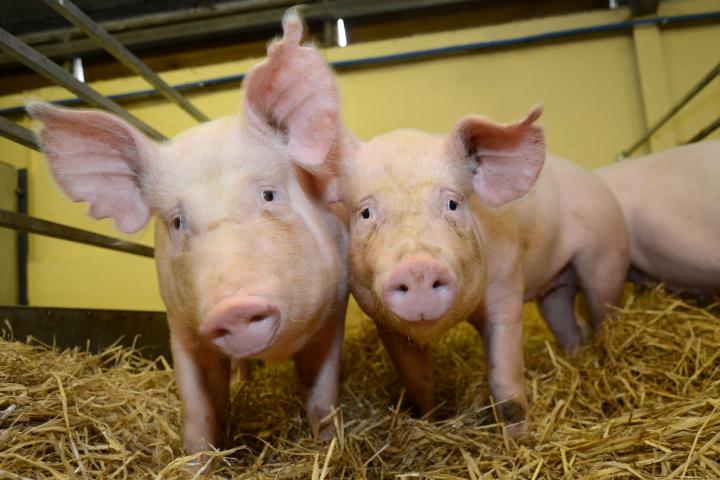Animal welfare event focuses on emotions
Insights into how animals experience feelings and emotions will be explored in talks, discussions and tours at a public event

A day-long public event dedicated to animal welfare is taking place at the Roslin Institute.
The Fourth Animal Welfare Day, on the theme of animal sentience and emotions, features talks, exhibitions, opportunities to see research facilities, discussion and debate.
It is jointly coordinated by Scotland's Rural College (SRUC), the Jeanne Marchig International Centre for Animal Welfare Education (JMICAWE) and BioResearch and Veterinary Services at the University of Edinburgh.
Welfare research
Roslin scientists have contributed to many recent welfare-related advances, including the launch of a website to promote veterinary immunology and vaccinology research.
The UK Immunological Toolbox, developed by the Roslin Institute and Pirbright Institute, is intended to remove barriers to veterinary vaccine development by enabling information exchange and collaboration.
Also on the topic of vaccines, a newly developed model of disease spread from Roslin researchers predicts the effectiveness of vaccines in preventing or eliminating infectious diseases in livestock.
When appropriately applied, even imperfect vaccines can prevent, eliminate or largely reduce the prevalence of viruses, the model shows.
Cattle digestion
A study into cows’ stomachs has revealed thousands of microbes, a finding that could improve their health.
The findings, from researchers from Scotland’s Rural College (SRUC), the Roslin Institute and the Rowett Institute at the University of Aberdeen, build the clearest picture yet of how the microbes in a cow’s rumen – the first of its four stomachs – help cattle to digest and extract energy from their food.
Dog breathing problems
Scientists have discovered a DNA mutation linked to breathing problems in popular dog breeds.
Breathing difficulties are most often associated with flat-faced breeds, such as French bulldogs and pugs, but a study found the mutation is also carried by Norwich terriers, which have proportional noses.
The finding, involving experts from the Royal Veterinary College and the University of Bern, Switzerland, could inform genetic tests that could help identify animals at risk, and prevent the breeding of affected pups.
Improved disease control
Scientists have used gene-editing techniques to stop the bird flu virus from spreading in chicken cells grown in the lab.
They prevented the virus from taking hold by using gene-editing techniques to delete a section of chicken DNA inside lab-grown cells. The virus was no longer able to grow inside cells with the genetic change.
Scientists have been mapping the entire genetic make-up of honey bees in the UK and organisms living inside them to keep them safe from disease.
Their findings, in a collaboration with the University of Edinburgh's School of Biological Sciences, could help to safeguard native bee populations from the effects of infectious diseases through improved health monitoring.
** The Roslin Institute receives strategic investment funding from the Biotechnology and Biological Sciences Research Council and it is part of the University of Edinburgh’s Royal (Dick) School of Veterinary Studies. **
Related links
Veterinary vaccine development aided by new website
Model predicts vaccine effectiveness in animals
Cow gut DNA study could help improve meat and dairy
Dog DNA find could aid breathing problems


